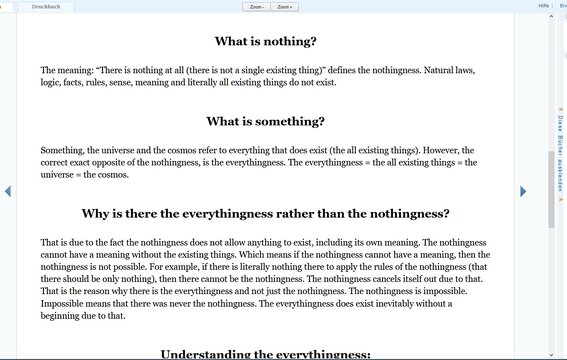Peacekeeper
Skilled Investigator
Hello, you may have read something in my notion thread already. If not, I have found something big on my research for new energy to solve the energy problem on Earth. I actually made the greatest discovery on Earth. I found the universe formula that explains exactly why and how everything exists, why there's something rather than nothing. The secret was that the nothingness is actually not possible if nothing exists. Because if nothing exists there are no rules to support the meaning of the nothingness either. Therefore if the nothingness is impossible, something must exist inevitably. That answer makes possible to understand the universe even better. For instance, that the universe is in fact limitless. That's a simple riddle because if the nothingness is impossible and something must exist inevitably, there's no beginning or an end possible.
The size of the universe reveals the existence of alien life. It's simple and logical to tell that there are limitless many different species out there if the universe is limitless.
I wrote a scientific book about my discovery where I explain around 40 questions (very related to the topic). The universe formula itself is free to read tough. My book is called "The Great Knowledge about the Everythingness".
Because I was a private researcher/scientist I don't actually have any contact of mainstream science. I've yet to get their attention too. There's no guarantee that anyone of them will even respond. I'm a bit sceptical about our science system anyway.
I'm also on YouTube "Axel Shark's Science". There you will find my first attempts explaining why there's something rather than nothing. But it's not nearly as good as my book. The work effort difference is days to several months in comparison. I also have 2 videos of the last 2 machines I was working on.
I hope I could do you some good with this post. Thx
The size of the universe reveals the existence of alien life. It's simple and logical to tell that there are limitless many different species out there if the universe is limitless.
I wrote a scientific book about my discovery where I explain around 40 questions (very related to the topic). The universe formula itself is free to read tough. My book is called "The Great Knowledge about the Everythingness".
Because I was a private researcher/scientist I don't actually have any contact of mainstream science. I've yet to get their attention too. There's no guarantee that anyone of them will even respond. I'm a bit sceptical about our science system anyway.
I'm also on YouTube "Axel Shark's Science". There you will find my first attempts explaining why there's something rather than nothing. But it's not nearly as good as my book. The work effort difference is days to several months in comparison. I also have 2 videos of the last 2 machines I was working on.
I hope I could do you some good with this post. Thx

